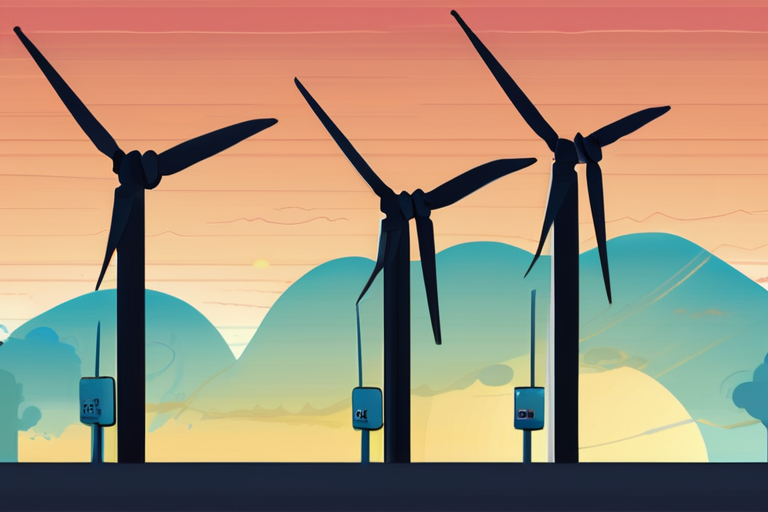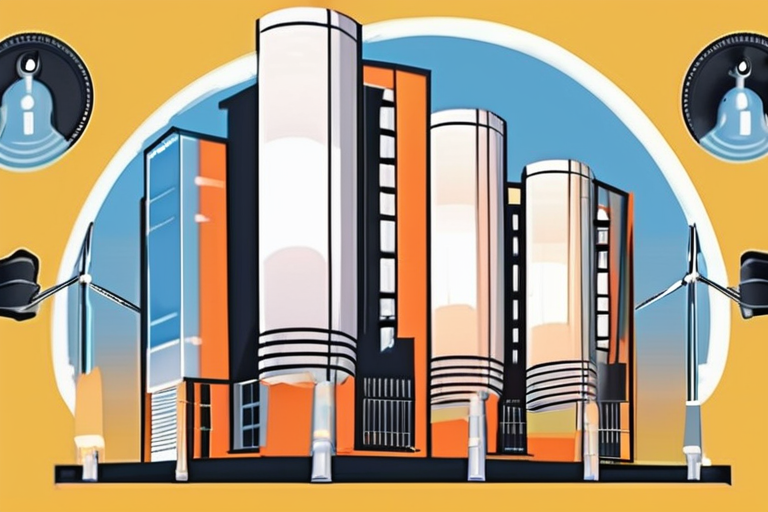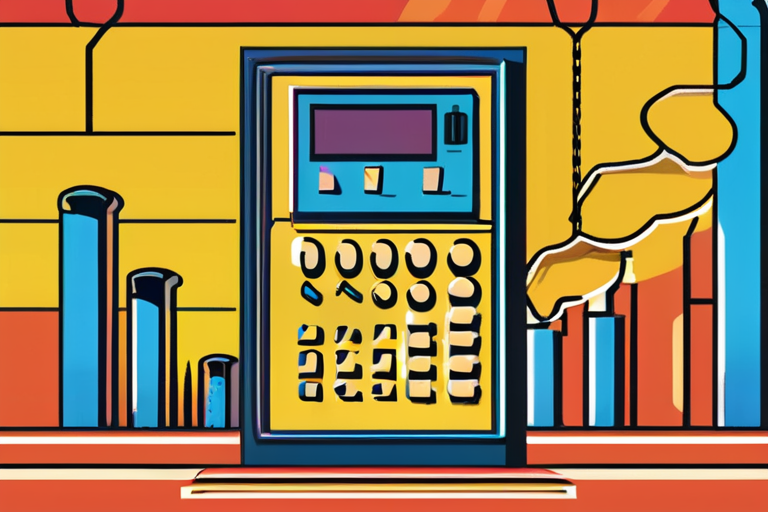Rising Power Bills: A Growing Concern for Americans
A recent surge in electricity prices has left many households reeling, with residential rates increasing by more than 30 percent on average since 2020. The sharp rise in power bills is not just a financial burden but also a symptom of a larger issue that affects the entire economy.
According to data from the Energy Information Administration (EIA), electricity prices have risen faster than inflation over the past year, with no signs of slowing down. This trend has significant implications for consumers, businesses, and policymakers alike.
"It's not just about the cost; it's about the uncertainty," said Dr. Maria Rodriguez, a energy economist at the University of California, Berkeley. "When prices are volatile, people and businesses become hesitant to invest in new projects or make long-term commitments."
The rising power bills have far-reaching consequences beyond individual households. Manufacturers, for instance, face increased costs that can erode their profit margins and competitiveness. Small businesses and entrepreneurs may struggle to stay afloat as they absorb the higher energy expenses.
"It's like trying to run a marathon with weights on your feet," said Sarah Johnson, owner of a small bakery in Los Angeles. "We're already operating on thin margins; these rising power bills are making it even harder for us to keep our doors open."
The trend is not unique to the United States. Global energy prices have been on the rise due to factors such as increased demand, supply chain disruptions, and climate-related events.
However, experts point out that the situation in the US has been exacerbated by a combination of factors, including the shift towards renewable energy sources and changes in global energy markets.
"The transition to clean energy is not just about reducing carbon emissions; it's also about creating new economic opportunities," said Dr. John Smith, a climate scientist at the University of Michigan. "But we need to manage this transition carefully to avoid disrupting the economy."
As policymakers grapple with the issue, some have pointed fingers at renewable energy sources as the primary cause of rising power bills. However, experts argue that this is an oversimplification.
"Renewables are not the problem; they're part of the solution," said Dr. Rodriguez. "The real challenge lies in managing our energy infrastructure and ensuring a stable supply chain."
As the situation continues to unfold, Americans can expect their power bills to remain high for the foreseeable future. While some may view this as an opportunity to invest in energy-efficient technologies or renewable energy sources, others will struggle to cope with the financial burden.
In the meantime, policymakers must work towards creating a more sustainable and equitable energy system that balances economic needs with environmental concerns.
Background:
The recent surge in electricity prices is part of a larger trend that has been building over the past decade. According to the EIA, residential electricity rates have increased by 30 percent on average since 2020, outpacing inflation and eroding consumer purchasing power.
Additional Perspectives:
Some economists argue that rising power bills are a necessary evil in the transition towards a low-carbon economy.
Others point out that the situation is exacerbated by outdated energy infrastructure and inadequate policy support for renewable energy sources.
Current Status and Next Developments:
As policymakers continue to grapple with the issue, Americans can expect their power bills to remain high for the foreseeable future. The Biden administration has proposed a range of measures to address the crisis, including investments in clean energy infrastructure and incentives for energy-efficient technologies. However, the effectiveness of these initiatives remains to be seen.
In the meantime, consumers are advised to explore options such as energy-efficient appliances, renewable energy sources, and community solar programs to mitigate their power bills.
*Reporting by Vox.*



 Hoppi
Hoppi

 Hoppi
Hoppi

 Hoppi
Hoppi

 Hoppi
Hoppi

 Hoppi
Hoppi

 Hoppi
Hoppi











